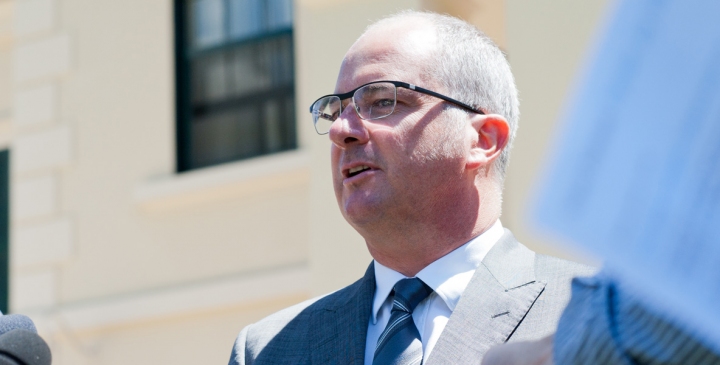Opium crops to be legalised in South Australia


A fenced off opium crop in Tasmania.
The State Government will support a Liberal bill to legalise growing opium poppies in South Australia.
The Labor Caucus agreed to the proposal this morning, which will allow the valuable pharmaceutical crop to be legally grown in South Australia, with the first harvest possible as early as next year.
Tasmania has been growing poppies for more than 40 years, and is one of the world’s leading suppliers to the pharmaceutical industry. Victoria and the Northern Territory are both recent entrants into the market, but it has been a prohibited crop elsewhere in Australia.
Opium poppies are grown legally to produce painkilling medicines, including morphine.
Crops in places like Afghanistan and South-East Asia are used to produce the illegal drug heroin.
Liberal agriculture spokesperson David Ridgway has already introduced a private members bill to make the crops legal, with a number of built-in safeguards including a strict licensing system and mandated security measures.
Agriculture minister Leon Bignell told InDaily this morning the Government would support Ridgway’s legislation, due to be voted on in the Legislative Council tomorrow, but he had a warning for potential growers.
“We will support the legislation because we don’t want to get in the way if people want to grow another crop,” Bignell said.
“There’s no politics in this – we’re as one (with the Liberals) in terms of trying to open things up for people to try new crops here.”
However, he said opium poppies can be a sensitive crop and he encouraged potential growers to do their “due diligence” to make sure they had the right conditions for success.
He also believed that global supply currently outstripped demand.
“It’s not necessarily the silver bullet that everyone’s looking for,” he said.
Ridgway welcomed the Government’s decision, saying he hoped the House of Assembly would pass the legislation in time for next year’s growing season.
He agreed it wouldn’t necessarily be a bonanza for all farmers, but believed that in the right areas of the state, it could be a valuable addition to a farmer’s mix of crops.
Irrigation was probably required, so that meant that the South-East was the most likely location for feasible opium crops. Riverland water might be too expensive, given the relatively high cost of planting an opium crop.
“We need to get the barriers out of the way and then farmers can make a commercial decision for themselves,” Ridgway said.
“It’s not for us to tell farmers what they can grow.”
His legislation includes a broad range of safeguards. Farmers would need a contract with a pharmaceutical company before being granted a growing license by the State Government.
Security measures, such as locked gates and secure fencing, are also stipulated in the legislation. Only “fit and proper” people could get a license – meaning people with criminal convictions would be excluded.





